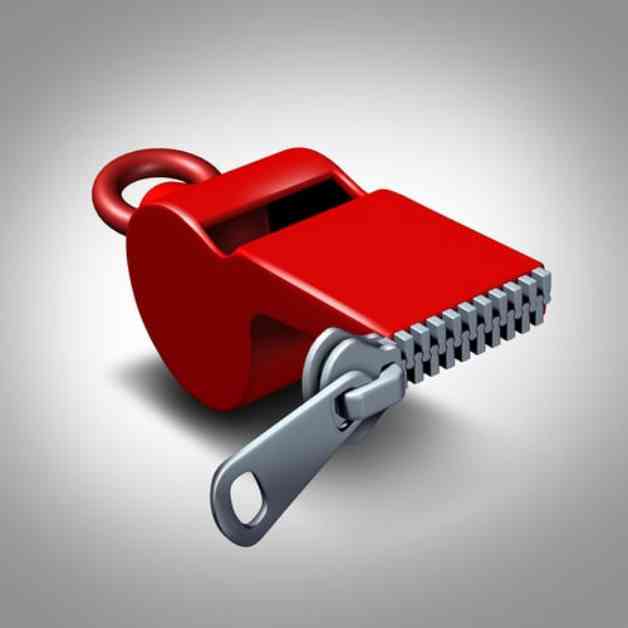In a recent ruling by the U.S. Court of Appeals for the District of Columbia Circuit, an in-house lawyer was denied a whistleblower award for reporting suspected wrongdoing to the U.S. Securities and Exchange Commission. The lawyer, known as John Doe, discovered possible fraud within his company during his representation, leading to an SEC investigation. However, the court determined that Doe’s disclosure was not authorized by the applicable state bar rule, thus disqualifying him from receiving the award.
The Case of John Doe
John Doe, an in-house lawyer, came across information regarding “Individual 2” that raised suspicions of securities fraud within his company. Despite Individual 2 not holding a formal role within the company, Doe believed that his company was implicated in the wrongdoing. This led him to report the suspected fraud to the SEC, sparking an investigation into his company’s activities.
SEC Whistleblower Awards
Under SEC regulations, attorneys can be eligible for whistleblower awards if they provide information that leads to successful enforcement actions. However, in Doe’s case, the court ruled that his disclosure did not meet the criteria for a whistleblower award due to the circumstances surrounding the discovery of the fraud. The court emphasized that Doe’s actions did not align with the ethics rule in Florida, which allows disclosure only when it is deemed necessary to serve a client’s interest.
Legal Implications
The ruling in Doe’s case highlights the complexities surrounding attorney disclosures in cases of suspected misconduct. While whistleblowing can be a crucial tool in uncovering fraud and holding wrongdoers accountable, attorneys must navigate ethical guidelines and professional responsibilities when considering reporting such activities. Doe’s lawyer, Max Maccoby, acknowledged the court’s decision, noting that although his client did the right thing by reporting the fraud, he was ultimately disqualified from receiving an award due to the failure to sufficiently insulate his corporate client.
The SEC v. Palm House Hotel Case
Although the D.C. Circuit did not explicitly name John Doe in its ruling, it was revealed that the SEC case in question was SEC v. Palm House Hotel. This case involved an alleged scheme to defraud foreign investors seeking EB-5 visas, which provide green cards based on U.S. investments that create jobs. Doe’s involvement in reporting the fraud within this case shed light on the challenges attorneys face when balancing their duty to clients with the obligation to uphold ethical standards.
The Role of Whistleblowers
Whistleblowers play a critical role in uncovering corporate misconduct and safeguarding the integrity of financial markets. However, as evidenced by John Doe’s case, the decision to blow the whistle can have far-reaching implications for attorneys, especially when the suspected wrongdoing involves their own clients. The ruling serves as a reminder of the delicate balance attorneys must strike between loyalty to their clients and adherence to ethical standards.
The Ethics of Whistleblowing
The ethical considerations surrounding whistleblowing are complex and multifaceted. Attorneys must weigh their duty to maintain client confidentiality with the obligation to report unlawful activities that may harm investors or the public. In John Doe’s case, the court’s ruling underscored the importance of adhering to state bar rules and ethical guidelines when making decisions that could impact their clients and their own professional standing.
Navigating Legal and Ethical Boundaries
Attorneys face a unique challenge when confronted with information that implicates their clients in wrongdoing. The case of John Doe serves as a cautionary tale for legal professionals, highlighting the need to carefully navigate the legal and ethical boundaries of their profession. While reporting misconduct is essential for upholding the rule of law and protecting investors, attorneys must ensure that their actions align with ethical standards and professional responsibilities.
Lessons Learned
The ruling in John Doe’s case offers valuable lessons for attorneys and legal professionals navigating the complex landscape of whistleblowing and professional ethics. By examining the implications of the court’s decision, lawyers can better understand the ethical considerations at play when faced with situations of suspected fraud or misconduct. As the legal profession continues to evolve, it is crucial for attorneys to uphold the highest standards of ethical conduct while fulfilling their duty to clients and the legal system.
In Conclusion
The case of John Doe and the recent ruling by the U.S. Court of Appeals for the District of Columbia Circuit shed light on the intricate challenges attorneys face when reporting suspected wrongdoing. While whistleblowing can be a powerful tool in uncovering fraud and corruption, attorneys must carefully consider the legal and ethical implications of their actions. By upholding ethical standards and professional responsibilities, attorneys can navigate the complex terrain of whistleblowing with integrity and diligence.















